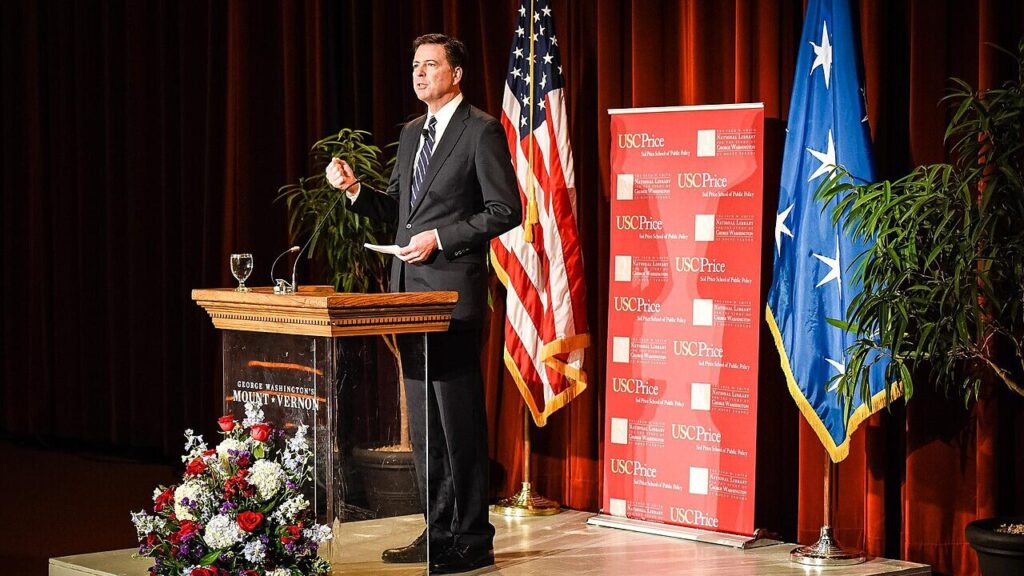Comey retained another former leak recipient as an attorney, raising the question: Is there anyone on his defense team he wasn’t leaking to? This development looks like another knot in a pattern that conservatives have been pointing out for years: close ties between a former FBI director and a network of leaks, lawyers and friendly media. The move demands tougher questions about judgment, privilege and national security risks tied to close circles that trade information among themselves.
At face value, hiring a lawyer who previously received leaked information from you is at least eyebrow-raising. From a Republican perspective, it suggests an echo chamber where loyalty and convenience matter more than impartiality. Critics argue this kind of arrangement undermines public trust when a former law enforcement chief appears comfortable operating inside a network that blurred professional lines.
Leaking inside or around an investigation is not just a newsroom moral issue, it’s a potential legal and ethical problem when it involves classified or sensitive material. Conservatives have long said leaks can be weaponized to shape political narratives, and when the same people keep appearing in both the leaking and defending roles, those concerns look less theoretical. The optics are bad: a legal team connected to past leak recipients feeds a sense of insider protection rather than accountability.
Supporters will call this a routine hiring decision and emphasize a lawyer’s right to represent clients regardless of prior communications. That defense has surface plausibility, but it does not erase the pattern or the public perception. When you repeatedly see the same players swapping roles—source, recipient, defender—it invites scrutiny about whether privileged relationships trump strict adherence to legal norms.
There’s also the practical side: leaks can expose sensitive investigative steps and give opponents a roadmap for countermeasures. Conservatives worry that such disclosures risk national security and hinder future criminal probes by revealing methods and sources. When a defense team includes someone who previously benefited from leaks, critics argue that it could chill impartial legal review and complicate any internal inquiries.
Accountability mechanisms are supposed to step in when patterns emerge: inspector general reviews, congressional oversight, and professional disciplinary bodies all exist to check officials who cross lines. From the conservative viewpoint, those tools need to work without double standards. If a former official’s circle repeatedly intersects with leak activity, oversight should follow the facts wherever they lead, with equal treatment under the law.
The media’s role matters too. Newsrooms that act as repeat recipients in a network with former officials deserve skeptical coverage, not reflexive praise for “holding power to account.” Conservatives will say journalists should ask hard questions about how they obtain information and whether publication serves the public interest or partisan agendas. Transparency about sources and motives would help restore some trust.
This hiring decision isn’t a one-off curiosity; it’s another piece of a broader pattern that raises legitimate concerns about judgment and propriety. Republicans will keep pointing to recurring links between leaks and legal representation as evidence that closer scrutiny is needed. The key is not grandstanding but insisting on consistent oversight and clear rules that apply to everyone in and around the law enforcement and political ecosystems.



